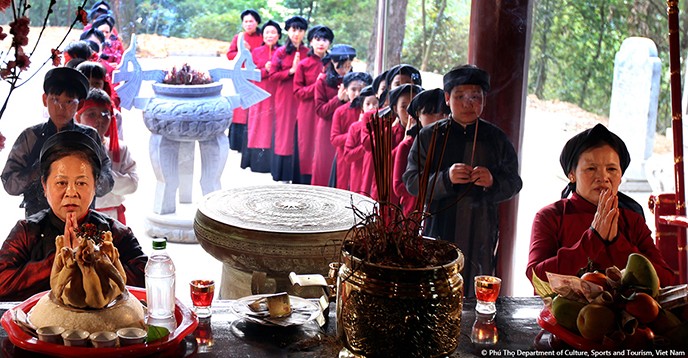UNESCO recognizes efforts to safeguard Xoan singing
VGP - The UNESCO has decided to transfer Xoan singing from the List of Intangible Cultural Heritage in Need of Urgent Safeguarding to the Representative List of the Intangible Cultural Heritage of Humanity.
 |
|
Xoan singing in the midland province of Phu Tho. |
The decision reflects UNESCO’s recognition of the efforts by local communities and the national authorities to reinforce the viability of one of the Vietnamese musical traditions.
Closely linked to the worship of Hung Kings, Xoan singing is a religious practice rooted in the ancestor worship of the Vietnamese people. It is traditionally performed during the first two months of the lunar calendar in holy places such as temples, sanctuaries and communal houses.
A safeguarding program to counter the decline of this tradition was launched in 2013 and is due to run until 2020. The program has led to an increase in the number of musicians practicing Xoan singing from approximately 100 in 2011 to 200 today.
The program has notably allowed for the creation of a fund and festivals, the launch of publications and documentaries alongside training activities.
Since 2009, when the Intangible Cultural Heritage Lists were created, it is the first time that the Committee examines a transfer from one List to the other./.
By Thuy Dung

